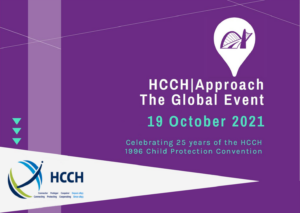Views
Nothing Found
Sorry, no posts matched your criteria
News
New Arbitration Rules of Zhuhai Court of International Arbitration
Against the background of “One Belt, One Road” initiative and the construction of Guangdong-Hong Kong-Macau Great Bay Area, after being elevated to be a national free trade zone a few years ago, Henqin Island located in Zhuhai City of Guangdong Province and neighboring Macau was re-labelled as the deeper integration (cooperation) area between Guangdong and Macau days before. To keep up with this political pace, the Zhuhai Court of International Arbitration (ZCIA) now regularly running its business in Henqing Island was established by the Zhuhai Arbitration Commission with the hope that international business people especially those pursuing Sino-Portuguese speaking countries trade could choose Henqin as the seat for their arbitration. In honor of the National Day of the People’s Republic of China, Oct 1st, ZCIA publicized its updated arbitration rules yesterday. However, this time three versions of different languages were provided simultaneously ie Chinese, Portuguese and English, the last of which was translated by myself. For its latest arbitration rules, please see http://www.zhac.org.cn/?cat=3.
HCCH Monthly Update: September 2021
Membership
On 9 September 2021, Honduras deposited its instrument of acceptance of the Statute, becoming the 90th Member of the HCCH. More information is available here.
Conventions & Instruments
On 1 September 2021, the HCCH 1993 Adoption Convention entered into force for Niger. The Convention currently has 104 Contracting Parties. More information is available here.
On 16 September 2021, Costa Rica signed the HCCH 2019 Judgments Convention. Although the 2019 Judgments Convention is not yet in force, Costa Rica is its fourth signatory. More information is available here.
On 16 September 2021, the HCCH 1961 Apostille Convention entered into force for Singapore. The Convention currently has 120 Contracting Parties. More information is available here.
Meetings & Events
On 14 and 15 September 2021, the Experts’ Group on Family Agreements met for the fifth time, via videoconference. The Group discussed the most recent revision of the draft Practical Guide on cross-border recognition and enforcement of agreements reached in the course of family matters involving children. More information is available here.
From 28 to 30 September 2021, the Working Group on Preventing and Addressing Illicit Practices in Intercountry Adoption met via videoconference. The Group continued to work on the development of a Toolkit aimed at preventing and addressing illicit practices in intercountry adoptions made under the HCCH 1993 Adoption Convention. More information is available here.
On 28 September 2021, the HCCH Regional Office for Asia and the Pacific hosted the webinar “HCCH|Approach: Twenty-Five Years of the HCCH 1996 Child Protection Convention in the Asia and Pacific Region: Present, Development and Future”. More information is available here.
Publications & Documentation
On 23 September 2021, the Permanent Bureau announced the publication of 19 new translations of the Guide to Good Practice under the Child Abduction Convention: Part VI – Article 13(1)(b). With these new translations, the Guide to Good Practice is now available in 23 European Union (EU) languages. More information is available here.
Other
On 22 September 2021, the Permanent Bureau announced the successful outcome of a new EU Action Grant application for iSupport. This new project will be called iSupport ITMF (International Transfer of Maintenance Funds), as it will aim at establishing a link between the iSupport software and bank accounts held by Central Authorities. More information is available here.
These monthly updates are published by the Permanent Bureau of the Hague Conference on Private International Law (HCCH), providing an overview of the latest developments. More information and materials are available on the HCCH website.
HCCH|Approach Global Event
The HCCH is pleased to announce that registration for the HCCH|Approach Global Event is now open!
Join us online on Tuesday, 19 October for a day of panel discussions and talks by global experts on occasion of the 25th anniversary of the HCCH 1996 Child Protection Convention.
How does the Convention impact children on the move? What is its significance to the implementation of the UN Convention on the Rights of the Child? How does it apply to matters of relocation, custody and contact? Hear more about these and other topics on 19 October!
For more information, please visit the HCCH|Approach webpage.
To attend, please fill out the registration form.



